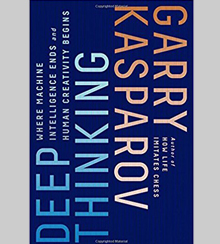Learned a lot lending an editorial hand here:
PwC Strategy& Middle East, April 2025
by GP Singh, Mahmoud Makki, Tarek Matar, and Ankit Kushwaha
Customers in every industry are demanding personalized, real-time engagement across channels, whether it is social media, mobile apps, or retail stores online and offline. They expect to be uniquely understood in the moment.
Marketers know that personalization is critical to relevance and differentiation, revenue growth, and brand value. Leaders are tackling this challenge head-on. First, they are gathering massive, proprietary data sets of customer information. Unilever, for example, is on a mission to create 1 billion one-on-one customer relationships by analyzing interactions across digital and in-store touch points for marketing insights. Second, such leaders are creating integrated marketing technology (MarTech) stacks to enable real-time personalization. McDonald’s integrated its MarTech to deliver personalized drive-through menus, mobile app offers, and in-store experiences, increasing its digital customer frequency by 10 percent and raising customer spending. Third, these leaders are exploiting real-time insights to get their concept into the market faster. Such agility allowed Coca-Cola to quickly move from a concept to the production of personalized bottles and cans in its “Share a Coke” campaign, which it launched in Australia and then expanded globally, and grow sales by 2.5 percent in a year in the competitive U.S. market.
Telecom operators are uniquely positioned to fulfill the personalization imperative. Their data sets, which include real-time location data, usage patterns, and customer service interactions, are broader and richer than those of industries such as finance or retail.
The problem is that many telecom operators are struggling to tap this gold mine of insights. In many cases, they are unable to deliver the right offer at the right place and the right time to their customers. We find that telecom companies typically utilize only 30 to 50 percent of their data. Senior telecom executives worry that disconnected MarTech stacks and skills gaps are holding them back.
Data-fueled, AI-powered marketing engines can unlock the potential for personalization. Such engines can produce the insights needed for personalized engagement, promote more informed decisions, and create the precision targeted strategies needed to enhance returns and deliver competitive advantage. Our analysis shows that for telecom companies in the early stages of their customer value management (CVM) journey, every $1.00 invested in AI-powered, data-fueled marketing can yield up to $5.90 in EBITDA (earnings before interest, taxes, depreciation, and amortization) gains over five years. (Read the rest here.)
Tuesday, April 15, 2025
The Personalization Imperative: Driving telecom growth with AI-powered marketing
Posted by
Theodore Kinni
at
2:13 PM
0
comments
![]()
Labels: AI, data science, GCC, marketing, telecom
Tuesday, October 26, 2021
What’s Your Return on Visibility?
Learned a lot lending an editorial hand here:
MIT Sloan Management Review, October 26, 2021
by Michael Schrage

Digitalization driven by COVID-19 has accelerated and transformed management’s ability to track what and how workers are doing. This growth in networked visibility significantly increases the risk of institutional and interpersonal conflict, as well as challenges to cultural norms.
Many workers rationally fear that enhanced monitoring empowers management — and micromanagement — at their expense. When experienced as corporate surveillance, monitoring implies a lack of trust and an invasion of privacy, especially when people are working from home. That’s not sustainable; no one wants to feel spied on. Consequently, if not ironically, leaders are being pushed to make visibility far more visible.
While greater transparency around visibility can allay employee fears, it may also expose and provoke clashes in core values. If the interactions on a distributed work team, for example, are appropriately inclusive, but that negatively affects productivity, what happens next? Workers in general — and remote workers in particular — want credible narratives explaining visibility’s benefits, costs, and trade-offs. Opacity around visibility invites credible accusations of hypocrisy.
Visibility, like capital, compensation, and digital transformation, requires explicit purpose and policies. Leaders, not just HR and IT administrators, should explicitly manage visibility as an enterprise asset. Read the rest here.
Posted by
Theodore Kinni
at
8:39 AM
0
comments
![]()
Labels: articles to ponder, corporate success, data science, employee experience, human resources
Tuesday, March 16, 2021
Seeing, doing, and imagining
strategy+business, March 16, 2021
by Theodore Kinni
Photograph by Laurence Dutton
My vote for the foggiest assertion of the pandemic to date is that the U.S. has an abysmally high number of COVID-19 cases — more than 29 million as of March 8, 2021 — because of testing. “If you don’t test, you don’t have any cases,” former President Donald Trump said during a televised White House roundtable on June 15, 2020. “If we stopped testing right now, we’d have very few cases, if any.” I wonder how many people who heard that had the same first thought as I did: Correlation is not causation.
Though associations gleaned from big data drive recommendation engines and bolster corporate revenues, they have their limitations. Imagine trying to control a viral pandemic by refusing to test people for the virus.This isn’t to say that correlation — the idea that two or more things are associated in some way — isn’t valuable. Indeed, there is big money in correlation. In order to peddle subscriptions, Pandora doesn’t need to know what causes people who listen to The Grateful Dead to also listen to Phish. To bulk up its sales, Amazon doesn’t need to know what causes people who buy a Paleo diet book to also buy beef jerky.
The passive observation of data has limited value, because, as Judea Pearl reminds readers several times in The Book of Why: The New Science of Cause and Effect, data is profoundly dumb. “Data can tell you that the people who took a medicine recovered faster than those who did not take it, but they can’t tell you why,” writes the director of UCLA’s Cognitive Systems Lab. “Maybe those who took the medicine did so because they could afford it and would have recovered just as fast without it.”
Association, which Pearl, a Turing Award winner, identifies as the first of three steps on his ladder of causation, won’t help executives answer many of the questions they need to ask when formulating corporate strategy, making investment decisions, or setting prices. To answer questions such as, “What will raising prices by 10 percent do to revenues?” you need to start climbing Pearl’s ladder. Read the rest here.
Posted by
Theodore Kinni
at
8:18 AM
0
comments
![]()
Labels: AI, analytics, artificial intelligence, corporate success, data science, experiments, management, strategy+business
Wednesday, March 3, 2021
Does Your C-Suite Have Enough Digital Smarts?
Learned a lot lending an editorial hand here:
MIT Sloan Management Review, March 3, 2021
by Peter Weill, Stephanie L. Woerner, and Aman M. Shah
Image courtesy of Anna & Elena Balbusso/theispot.com
There’s little doubt that the future of business is digital. Companies that are in the lead implementing digital technologies have radically improved their operational efficiency and their customers’ experiences. And, even more important, the new capabilities unlocked by digital technologies have allowed them to reimagine their purposes and their business models.
Having a digitally savvy top leadership team — that is, a team in which more than half of the executive members are digitally savvy — makes a huge difference. Our latest research shows that large enterprises with digitally savvy executive teams outperformed comparable companies without such teams by more than 48% based on revenue growth and valuation.
Digital savviness is an understanding, developed through experience and education, of the impact that emerging technologies will have on a business’s success over the next decade. Sharing this understanding across the top management team is a key ingredient in the success of corporate transformation. As Jean-Pascal Tricoire, chairman and CEO of energy management company Schneider Electric, told us, “When every business becomes a digital business, every executive needs to take digital transformation personally. The last thing you want in your team is the belief that digital is somebody else’s problem.”
Unfortunately, the demand for digital savviness in the upper echelons of leadership has grown far more quickly than the supply. In 2019, when we studied the boards of directors in 3,228 large U.S.-listed companies with more than $1 billion in annual revenues, we discovered that only 24% of boards were digitally savvy. In 2020, we extended our research to encompass top management teams — C-level executives and leaders of functions and geographic territories — in 1,984 large companies globally. Our new findings indicate that only 7% of companies have digitally savvy executive teams.
In this article, we report the findings of our research into the level of digital savviness among top management teams, the business value it delivers, and the actions that companies can take to increase the digital savviness of their senior executives. Read the rest here.
Posted by
Theodore Kinni
at
6:46 AM
0
comments
![]()
Labels: corporate success, data science, decision making, digitization, human resources, leadership, personal success, transformation
Tuesday, March 2, 2021
Why So Many Data Science Projects Fail to Deliver
Learned a lot lending an editorial hand here:
MIT Sloan Management Review, March 2, 2021
by Mayur P. Joshi, Ning Su, Robert D. Austin, and Anand K. Sundaram

Image courtesy of Jean Francois Podevin/theispot.com
To better understand the mistakes that companies make when implementing profitable data science projects, and discover how to avoid them, we conducted in-depth studies of the data science activities in three of India’s top 10 private-sector banks with well-established analytics departments. We identified five common mistakes, as exemplified by the following cases we encountered, and below we suggest corresponding solutions to address them. Read the rest here...
Posted by
Theodore Kinni
at
5:41 PM
0
comments
![]()
Labels: AI, analytics, corporate success, data science, experiments, management, technology, work
Tuesday, November 24, 2020
The Transformational Power of Recommendation
Learned a lot lending an editorial hand here:
MIT Sloan Management Review, November 24, 2020
by Michael Schrage
Image courtesy of Paul Giovanopoulos/theispot.com
Wikipedia defines recommendation engines (and platforms and systems) as “a subclass of information filtering system that seeks to predict the ‘rating’ or ‘preference’ a user would give to an item.” But as a tool, technology, and digital platform, recommendation engines are far more intriguing and important than this definition suggests.
In data-driven markets, the most effective competitors reliably offer the most effective advice. When predictive analytics are repackaged and repurposed as recommendations, they transform how people perceive, experience, and exercise choice. The most powerful — and empowering — engines of commerce are recommendation engines.
Recommendation engines have been essential to the success of digital platforms Alibaba, Amazon, Netflix, and Spotify, according to their founders and CEOs. For companies such as these, recommendation engines aren’t merely marketing or sales tools but drivers of insight, innovation, and engagement. Superior recommendations measurably build superior loyalty and growth; they amplify customer lifetime value. Computing compelling recommendations profitably reshapes human behavior.
The influence and purpose of recommendation engines are not limited to customers or consumption. Large employers, most notably Google, have adopted and adapted recommendation engines as internal productivity platforms to nudge workers to their best decision options. Indeed, in late 2016, Laszlo Bock, the senior vice president of people operations at Google, left the company to launch Humu, a recommendation-engine startup for advising workforce behavior change.
While data remains the essential advisory ingredient, the global recommendations revolution reflects profound and ongoing algorithmic innovation, enabling machine learning and AI to power improvements in deep learning and generative adversarial networks. Successful recommendation engines learn how to learn. The more people use them, the smarter they become; the smarter they become, the more people use them. Done right, recommendation engines enable virtuous cycles of value creation.
The networked nudges and prompts of recommendation engines increasingly influence people’s choices in clothing, entertainment, food, and medicine; they also influence the texts we send, which friends we contact, the customers and prospects we prioritize, the experts we seek, the job candidates we hire, the investments we choose, the memos we edit, and the schedules we follow.
But prompts and nudges shouldn’t obscure the subtle but vital design principle that makes the recommendation-engine value cycle more virtuous: Recommendation is about ensuring better options and choices, not obedience or compliance. Recommendation engines don’t seek to impose optimal, best, or right answers on their users. To the contrary, their point and purpose are greater empowerment and agency. Influence, not control, is the algorithmic aspiration. In this, successful recommendation-engine design depends more on how recommenders seek to influence than on how much they know.
Recommendation engines transform human choice. Much as the steam engine energetically launched an industrial revolution, recommendation engines redefine insight and influence in an algorithmic age. Wherever choice matters, recommenders flourish, and this profound digital transformation of choice will only become more pervasive as recommenders become smarter. Better recommenders invariably mean better choices. Read the rest here.
Posted by
Theodore Kinni
at
11:39 AM
0
comments
![]()
Labels: AI, analytics, books, corporate success, customer experience, data science, employee experience, recommendation engines
Wednesday, November 11, 2020
What people like you like
strategy+business, November 11, 2020
by Theodore Kinni
Photograph by Paper Boat Creative
I don’t set much store in the endless stream of recommendations offered by Amazon, Netflix, Spotify, and most other online businesses. Occasionally, a book, flick, or song pops up that delights me, but most of the suggestions I get either miss the mark or appear suspiciously advantageous to recommendation engine operators and their advertisers.
Michael Schrage, visiting fellow at the MIT Sloan School of Management’s Initiative on the Digital Economy and s+b contributor, awakens us to the potential of delightful discovery in his latest book, Recommendation Engines. “Recommendation inspires innovation: that serendipitous suggestion—that surprise—not only changes how you see the world, it transforms how you see—and understand—yourself. Successful recommenders promote discovery of the world and one’s self,” Schrage writes in its introduction. “Recommenders aren’t just about what we might want to buy; they’re about who we might want to become.”
If this smacks of techno-utopianism, well, there is a strong strain of that ideology running through Recommendation Engines. For the most part, however, Schrage grounds this rosy view in the powerful effects that recommenders are already producing and balances it with acknowledgment of these systems’ potential for abuse. He also provides a short history of recommendations and a suitably technical description of how recommendation engines work and are built.
To date, the powerful effects of recommenders have manifested themselves mostly in commerce. Schrage cites a variety of facts in this regard: a survey that found recommendations account for approximately 30 percent of global e-commerce revenues; another that found online shoppers are 4.5 times more likely to buy after clicking on a recommendation; and research that “strongly suggests” recommendations drive roughly a third of Amazon’s sales. Read the rest here.
Posted by
Theodore Kinni
at
11:36 AM
0
comments
![]()
Labels: AI, bizbook review, books, corporate success, data science, decision making, digitization, platforms, recommendation engines, strategy+business, technology
Thursday, June 4, 2020
Want to Make Better Decisions? Start Experimenting
Learned a lot lending an editorial hand here:
MIT Sloan Management Review, Summer, 2020
by Michael Luca and Max H. Bazerman
Image courtesy of Ken Orvidas/theispot.com
Suppose you work on Google’s advertising team and need to decide whether ads should have a blue background or a yellow background. You think that yellow would attract the most clicks; your colleague thinks that blue is better. How do you make the decision?
In Google’s early days, the two of you might have debated the issue until someone caved or you both agreed to kick the decision up to the boss. But ultimately, it dawned on leaders throughout Google that many of these debates and decisions were unnecessary.
“We don’t want high-level executives discussing whether a blue background or a yellow background will lead to more ad clicks,” Hal Varian, Google’s chief economist, told us. “Why debate this point, since we can simply run an experiment to find out?”
Varian worked with the team that developed Google’s systematic approach to experimentation. The company now runs experiments at an extraordinary scale — more than 10,000 per year. The results of these experiments inform managerial decisions in a variety of contexts, ranging from advertising sales to search engine parameters.
More broadly, an experimental mindset has permeated much of the tech sector and is spreading beyond that. These days, most major tech companies, such as Amazon, Facebook, Uber, and Yelp, wouldn’t make an important change to its platforms without running experiments to understand how it might influence user behavior. Some traditional businesses, such as Campbell Soup Co., have been dipping their toes into experiments for decades. And many more are ramping up their efforts in experimentation as they undergo digital transformations. In a dramatic departure from its historic role as an esoteric tool for academic research, the randomized controlled experiment has gone mainstream. Startups, international conglomerates, and government agencies alike have a new tool to test ideas and understand the impact of the products and services they are providing. Read the rest here.
Posted by
Theodore Kinni
at
10:33 AM
0
comments
![]()
Labels: analytics, corporate success, data science, decision making, experiments, innovation, management
Tuesday, June 2, 2020
Making experiments pay
strategy+business, June 2, 2020
by Theodore Kinni
Illustration by AndSim
The current pandemic is a dramatic case study in why experiments matter. How else are we to know which tests accurately identify COVID-19 infections and their telltale antibodies, whether and how well drugs already at our disposal mitigate the suffering inflicted by the coronavirus, or whether the vaccines currently in development will actually protect us from it? Randomized controlled trials are the only way to answer these questions short of playing Russian roulette with the lives of large numbers of people.
Experiments have been around for a long time. In The Power of Experiments, an introductory paean to the benefits of experimentation for corporate and government decision making, Harvard Business School professors Michael Luca and Max Bazerman peg the first recorded experiment to the reign of King Nebuchadnezzar in Babylonia circa 600 BC.
As the Old Testament story goes, Nebuchadnezzar attacked Jerusalem and took a group of young Israelites, including one named Daniel, as servants. He ordered that they be acculturated for three years, in part by being fed the same food as the royal court, which the Israelites considered “ritually unclean.” But Daniel proposed that he and three other prisoners be fed only vegetables and water for 10 days, at which point a guard would compare their health to that of the rest of the prisoners, who would have been fed the local fare. At the end of the experiment, the guard judged the vegetarians healthier, and Daniel and his three comrades were able to continue eating the less objectionable diet.
About 2,600 years later, Luca and Bazerman write, “We are in the early days of the age of experiments.” By this, they mean that experiments have spread far beyond the boundaries of science labs and medical trials. In 2018, Google ran more than 10,000 experiments. Amazon, Facebook, Uber, Yelp, and TripAdvisor run thousands of experiments per year. As these names indicate, technology companies, especially those with digital platforms, are at the forefront of corporate experimentation. That’s because it is relatively easy to run experiments on their large, captive audiences. Read the rest here.
Posted by
Theodore Kinni
at
10:22 AM
0
comments
![]()
Labels: bizbook review, books, corporate success, data science, decision making, experiments, innovation, strategy+business, technology
Thursday, March 12, 2020
The algorithmic trade-off between accuracy and ethics
strategy+business, March 12, 2020
by Theodore Kinni
Photograph by Yuichiro Chino
Strava, a San Francisco–based fitness website whose users upload data from their Fitbits and other devices to track their exercise routines and routes, didn’t set out to endanger U.S. military personnel. But in November 2017, when the company released a data visualization of the aggregate activity of its users, that’s what it did.
Strava’s idea was to provide its users with a map of the most popular running routes, wherever they happened to be located. As it turns out, the resulting visualization, which was composed from three trillion GPS coordinates, also showed routes in areas, such as Afghanistan’s Helmand Province, where the few Strava users were located almost exclusively on military bases. Their running routes inadvertently revealed the regular movements of soldiers in a hot zone of insurgency.
The problem, explain University of Pennsylvania computer and information scientists Michael Kearns and Aaron Roth, authors of The Ethical Algorithm: The Science of Socially Aware Algorithm Design, is “that blind, data-driven algorithmic optimization of a seemingly sensible objective can lead to unexpected and undesirable side effects.” The solution, which they explore for nontechnical leaders and other lay readers in this slim book, is embodied in the emerging science of ethical algorithm design.
“Instead of people regulating and monitoring algorithms from the outside,” the authors say, “the idea is to fix them from the inside.” To achieve this, companies need to consider the fairness, accuracy, transparency, and ethics — the so-called FATE — of algorithm design.
Kearns and Roth don’t deal with the FATE traits in a sequential manner. Instead, they describe the pitfalls associated with algorithms and discuss the ever-evolving set of solutions for avoiding them. Read the rest here.
Posted by
Theodore Kinni
at
9:58 AM
0
comments
![]()
Labels: AI, analytics, artificial intelligence, bizbook review, books, corporate success, cybersecurity, data science, strategy+business
Tuesday, August 13, 2019
Staying Ahead of Disruption with Workforce Sensing
Learned a lot lending an editorial hand here:
Workforce Magazine, August, 2019
By Daniel Roddy and Chris Havrilla
The steady rise in searches reflects a reality that won’t surprise most leaders. They face a host of disruptions—social, demographic, environmental, economic, technological, and geopolitical. Not only is it their job to make sure that their companies don’t get blindsided by these breakpoints in the status quo, but they also must be able to respond to them quickly and agilely in order to transform these disruptions into competitive advantage.
Sensing is the foundation on which an organization’s ability to identify, pace, and respond to disruption is built. In hindsight, disruptions seem obvious. By the mid-2000s, it was clear that streaming movies would decimate the video rental industry. But to have realized that a decade earlier, when the MP3 format first emerged for audio, and acted upon it is another matter entirely.
The ability to sense disruptions in their nascent stages and predict how they are likely to affect a company and its stakeholders is crucial to success in business today. This is especially true when it comes to sensing disruptions in the workforce. Read the rest here.
Posted by
Theodore Kinni
at
1:26 PM
0
comments
![]()
Labels: change management, competitive intelligence, corporate success, data science, employee experience, human resources, management, work
Wednesday, December 5, 2018
Predictions for 2019: People analytics will augment the workforce and the workplace
![]() Learned a lot lending an editorial hand here:
Learned a lot lending an editorial hand here:
Deloitte Capital H Blog, December 4, 2018
by Kathi Enderes
Ninety percent of the data in the world has been created within the last two years alone, and the continued emergence of new technologies will likely increase that rate even more. HR leaders have been attempting for years to use people analytics to turn this vast amount of data into actionable insights, but many still struggle with how and where to apply people analytics to maximize the return on investment. In the coming year, more and more organizations will start to apply people analytics in a new way, with a direct focus on the individual, rather than through HR or leaders—a bottom-up approach, as opposed to just top-down.
Going forward, we predict people analytics will become a principal supporting factor in the growing autonomy (and productivity) of the individual, empowering each person with the insights to help them do their best work. Last year, Bersin’s High-Impact People Analytics research revealed that only 2 percent of surveyed organizations are highly mature in people analytics. That tiny percentage has granted us an advance look at how to put people analytics to work. The most mature functions not only integrate it throughout their enterprises but also focus it on addressing business problems, enhancing the quality of day-to-day decision-making, and expanding its accessibility and use through robust insight delivery systems. The purpose of people analytics in these few high-performing companies? Enhanced workforce productivity and performance. Read the rest here.
Posted by
Theodore Kinni
at
10:22 AM
0
comments
![]()
Labels: analytics, artificial intelligence, corporate success, data science, human resources, management, personal success, work
Sunday, November 25, 2018
How to embed data-driven decision-making into your organisational culture
Learned a lot lending an editorial hand here:
InsideHR, November 20, 2018
by Jeff Mike
Thanks to the increasing sophistication of analytics, data and algorithms can inform and improve management, business, and HR decision-making throughout companies. But, the tools of data collection and decision-support algorithms are only one element in the quest to attain the full potential of analytics.
Another is the ability of employees at all levels to use these tools, a challenge that will require a broad-based upskilling of the workforce. And, there’s an additional element – the willingness to employ analytics to make decisions. Compounding all of this is the fact that organisations today are becoming social enterprises, where the ability to manage social, environmental and governance concerns are as important as financial returns. In this environment, workers have more influence than ever. Their voices are amplified through social media and other means, meaning errors made by an organisation can have far-reaching consequences.
So, what does all of this mean? To create a willingness to use more data and unbiased decision-support algorithms, a mindset of data-driven decision-making should be embedded in the organisational culture in a way that benefits employees in their work as well as other stakeholders. The need for a data-driven culture is important and shouldn’t be underestimated.
In fact, this need is one of the top findings in Bersin’s High-Impact People Analytics research, which revealed that a company can fully utilise people analytics only if – and when – using data to make decisions becomes part of the culture, or “how we do things around here.” In fact, the research determined that organisations that have achieved the highest levels of people analytics maturity are three times more likely to have such a culture than organisations at lower maturity levels.
However, just making the decision to implement a mindset of data-driven decision-making into an organisation’s culture won’t work. In an analytics-friendly culture, data-driven decision-making isn’t an afterthought, an add-on, or a justification; rather, it is a shared mindset in which:
- Everyone recognises that data and analytics are essential to sound decision-making;
- They use data and analytics in their decision processes for all aspects of the enterprise including financial, social and environmental well-being;
- They use data and analytics to monitor – and adjust – decision outcomes to ensure desired results and to prevent bias.
Posted by
Theodore Kinni
at
8:52 AM
0
comments
![]()
Labels: AI, analytics, artificial intelligence, change management, corporate success, data science, decision making, human resources, management, org culture, technology
Friday, June 1, 2018
It's Time to Make the People Side of Business Data-Driven and Evidence-Based
Learned a lot lending an editorial hand here:
Boss, June 2018
by David Mallon
These days data is front-page news. It’s use—and misuse—has precipitated a host of corporate crises. In many of these stories, data is being demonized. But data, per se, isn’t bad or good; it’s what people do with it that matters.
We live in an era of digital technology, in which more and more of what we do generates data. A few years ago, IBM estimated that we were creating 2.5 quintillion bytes of data daily, and that something like 90 percent of all the data in the world created in the prior two years alone. The data we generate is collected, analyzed, and served back to us constantly, whether we realize it or not.
Companies and individuals must become masters of data or they may risk being mastered by it. And to master data, companies and individuals need to be mindful. What data will be collected? How can they ensure its accuracy? Who will collect it? Where, when, why, how, and for what purpose will it be used? Where will the data go? Who will have access to it? What privacy and security controls will protect it?
If that seems like a lot of questions, well, it is. We need to be active stewards of our data. We need to actively seek insights from it. We need to use those insights in positive, productive ways that drive organizational and personal value. The headlines tell us that these tasks shouldn’t be left unaddressed—especially when it comes to our people.
One finding rings out clearly in Bersin’s High-Impact People Analytics study: Companies that are proactively building an organizational muscle around people data and analytics are getting ahead.
Some corporate functions, like marketing, are already well along in the data and analytics race. But the typical HR department is not nearly as evolved. Our study revealed that only two percent of companies surveyed have a fully mature (Level Four) people analytics capability; meanwhile 83 percent of companies are operating at Levels One and Two.
The people side of business must become more data-driven and evidence-based. Data can and should inform decisions around performance, people, and talent, if for no other reason than the fact that relying on tradition and prior experience are neither sufficient nor prudent in today’s digital world...read the rest here
Posted by
Theodore Kinni
at
8:31 AM
0
comments
![]()
Labels: AI, analytics, corporate life, corporate success, data science, decision making, human resources, leadership, management, technology, work
Wednesday, May 23, 2018
How Human-Computer ‘Superminds’ Are Redefining the Future of Work
Learned a lot working on this book adaptation:
MIT Sloan Management Review, May 21, 2018
by Thomas W. Malone

The ongoing, and sometimes loud, debate about how many and what kinds of jobs smart machines will leave for humans to do in the future is missing a salient point: Just as the automation of human work in the past allowed people and machines to do many things that couldn’t be done before, groups of people and computers working together will be able to do many things in the future that neither can do alone now.
To think about how this will happen, it’s useful to contemplate an obvious but not widely appreciated fact. Virtually all human achievements — from developing written language to making a turkey sandwich — require the work of groups of people, not just lone individuals. Even the breakthroughs of individual geniuses like Albert Einstein aren’t conjured out of thin air; they are erected on vast amounts of prior work by others.
The human groups that accomplish all these things can be described as superminds. I define a supermind as a group of individuals acting together in ways that seem intelligent.
Superminds take many forms. They include the hierarchies in most businesses and other organizations; the markets that help create and exchange many kinds of goods and services; the communities that use norms and reputations to guide behavior in many professional, social, and geographical groups; and the democracies that are common in governments and some other organizations.
All superminds have a kind of collective intelligence, an ability to do things that the individuals in the groups couldn’t have done alone. What’s new is that machines can increasingly participate in the intellectual, as well as the physical, activities of these groups. That means we will be able to combine people and machines to create superminds that are smarter than any groups or individuals our planet has ever known...Read the rest here
Posted by
Theodore Kinni
at
8:37 AM
0
comments
![]()
Labels: books, corporate success, data science, decision making, innovation, management, strategy, technology
Monday, April 23, 2018
How to Cure a Bad Case of Metric Fixation
strategy+business, April 23, 2018
by Theodore Kinni
The Tyranny of Metrics is a pearl of a book. And like all pearls, it was born of an irritation. As chair of the history department at the Catholic University of America, Jerry Muller found himself — and his school — devoting more and more precious time and resources to performance measurement and reporting.
Some of this activity was useful, admits Muller. “But much of the information was of no real use, and indeed, was read by no one,” he writes. “Yet once the culture of performance documentation caught on, department heads found themselves in a sort of data arms race.” In one instance, Muller was urged to add more statistical appendixes to a yearlong department survey, because “the report would look less rigorous than that of other departments” without them. Moreover, the university found itself hiring more and more data specialists, up to and including a new vice president for assessment.
This experience, which Muller describes as an irritating pinprick, inspired him to look more closely at metrics. And that investigation resulted in a concise and clearly argued polemic, which, Muller writes, is “for anyone who wants to understand one of the big reasons why so many contemporary organizations function less well than they ought to, diminishing productivity while frustrating those who work in them.” Read the rest here.
Posted by
Theodore Kinni
at
8:32 AM
0
comments
![]()
Labels: analytics, bizbook review, books, corporate life, data science, decision making, management, strategy+business, work
Wednesday, July 19, 2017
The Sore Loser and the Supercomputer
strategy+business, July 19, 2017
by Theodore Kinni
 In June 1985, Garry Kasparov, the highest-ranked chess player in the world, simultaneously played 32 games against 32 computers. He swept the event, winning every game. Twelve years later, in May 1997, Kasparov played a high-stakes, head-to-hard-drive, six-game match against a single computer: IBM’s Deep Blue. The result? The supercomputer beat the reigning chess champ in regulation play. Artificial intelligence had hit the big time.
In June 1985, Garry Kasparov, the highest-ranked chess player in the world, simultaneously played 32 games against 32 computers. He swept the event, winning every game. Twelve years later, in May 1997, Kasparov played a high-stakes, head-to-hard-drive, six-game match against a single computer: IBM’s Deep Blue. The result? The supercomputer beat the reigning chess champ in regulation play. Artificial intelligence had hit the big time.It’s taken Kasparov a long time to process his historic battle against Deep Blue. “I’m a sore loser,” he frankly admits in Deep Thinking, which is a meditation on both his personal history and the future of work. A full 20 years later, that characteristic is evident in Kasparov’s description and analysis of the match — and his detailed suspicions about spying and “human intervention” by IBM.
Kasparov clearly didn’t expect Big Blue, led in those days by Louis Gerstner Jr., to play to win. The company invested an estimated US$20 million in developing and promoting Deep Blue, and the win, Kasparov argues, boosted IBM’s stock by $11.4 billion in just over a week — to say nothing of the value that accrued to the brand. Nevertheless, Kasparov appears surprised that IBM treated the match as anything other than a collegial experiment in computer science (even though he had negotiated a guaranteed minimum payday of $400,000 in case of a loss; the Deep Blue development team received $700,000).
Unless you are a serious chess player, however, Kasparov’s account of the match isn’t the best reason to read Deep Thinking. Read the rest here.
Posted by
Theodore Kinni
at
8:32 AM
0
comments
![]()
Labels: bizbook review, books, corporate success, data science, decision making, personal success, strategy+business, technology, work
Friday, April 7, 2017
Investing in America’s Data Science and Analytics Talent
Learned a lot lending an editorial hand on this joint report:
Posted by
Theodore Kinni
at
10:45 AM
0
comments
![]()
Labels: articles to ponder, corporate success, data science, education, personal success
Thursday, November 10, 2016
TechSavvy: Is Your Company Winning the Race to Digital Transformation?
 MIT Sloan Management Review, November 10, 2016
MIT Sloan Management Review, November 10, 2016
by Theodore Kinni
In some respects, the digitization of business is a pretty nebulous subject. It’s not like a company achieves digital transformation on some specific date — the darn target moves as new technologies and applications appear. That’s one reason why Jane McConnell’s 10th annual inquiry into “The Organization in the Digital Age” is worth a look.
McConnell frames digital transformation as an organizational imperative that manifests itself in three dimensions: people, workplace, and technology. Over the past decade, she has been gauging the progress that a broad, international group of 300+ companies and other institutions has been making toward this imperative in three stages.
The Starting stage is defined by an individual (rather than organizational) digital awareness — digital initiatives are ad hoc and infrequent; senior leaders are minimally involved; most decisions are made by traditional hierarchy; work mainly takes place in established channels, with some virtual venues. The Developing stage is defined by mobilization — a compelling vision for digital transformation exists; senior managers are leading the charge; most functions, levels, and entities are involved in digital initiatives. The Maturing stage is defined by trust — digital is considered a strategic asset; it is embedded in work practices; much decision making is decentralized; information and collaboration is organization-wide and includes customers and external partners.
“The 2016 data shows 16% of the survey participants in the Maturing stage, 52% in the Developing stage, and 32% in the Starting stage,” McConnell reports. Where does your company place? Read the rest here.
Posted by
Theodore Kinni
at
10:25 AM
0
comments
![]()
Labels: articles to ponder, blockchain, change management, competitive intelligence, corporate success, data science, digitization, entrepreneurship, innovation, leadership, TechSavvy
Thursday, November 3, 2016
TechSavvy: How “Smart” Is Your R&D Spending?
MIT Sloan Management Review, November 3, 2016
by Theodore Kinni
 Strategy&’s annual Global Innovation 1000 study, which examines the 1,000 public companies that spend the most on R&D (collectively 40% of the world’s total R&D spending), is always insightful. The most dismaying finding: In every one of the past 12 years, the study has found no statistically significant relationship between the financial performance of the Innovation 1000 companies and their R&D spending.
Strategy&’s annual Global Innovation 1000 study, which examines the 1,000 public companies that spend the most on R&D (collectively 40% of the world’s total R&D spending), is always insightful. The most dismaying finding: In every one of the past 12 years, the study has found no statistically significant relationship between the financial performance of the Innovation 1000 companies and their R&D spending.Assuming that fact doesn’t cause you to throw up your hands and use your company’s R&D budget for a massive beer bash, this year’s study, published in strategy+business, provided another insight that is well worth considering: A transformation in R&D spending is occurring.
“R&D is shifting more and more toward developing software and services,” write Strategy& principals Barry Jaruzelski, Volker Staack, and Aritomo Shinozaki. “Software increasingly carries the burden of enabling product differentiation and adaptability, and enhancing customer experiences and outcomes. Services, offered along with or separately from physical products, now focus more on new customer needs, providing enhanced value and improved usability.”
This shift, explain the authors, is driven by the ever-increasing capabilities of software, the embedding of software and sensors in products, the ability to connect products via IoT and the cloud, and, as always, customer demand. It’s manifesting in every kind of “smart” product and service.
Since 2010, the Global Innovation 1000 companies have increased their R&D spending on software offerings by 65% — to $142 billion. In addition, report the authors, “companies currently allocating 25% or more of their R&D budgets to software offerings reported that their revenues were growing significantly faster than those of key competitors with lower allocations.”
What does your company spend its R&D budget on? Read the rest here.
Posted by
Theodore Kinni
at
10:17 AM
0
comments
![]()
Labels: articles to ponder, corporate success, creativity, cybersecurity, data science, entrepreneurship, innovation, IoT, technology, TechSavvy
















